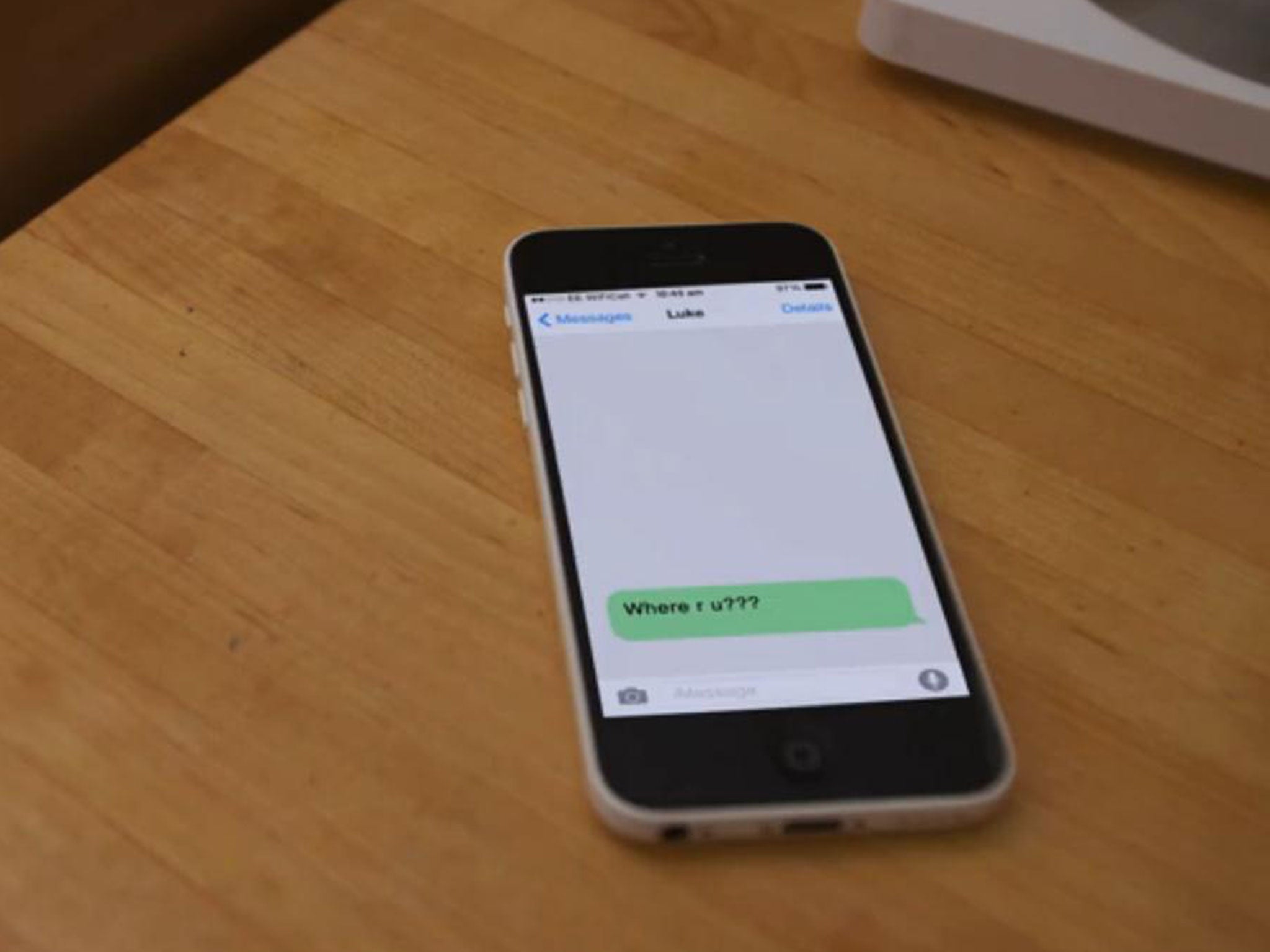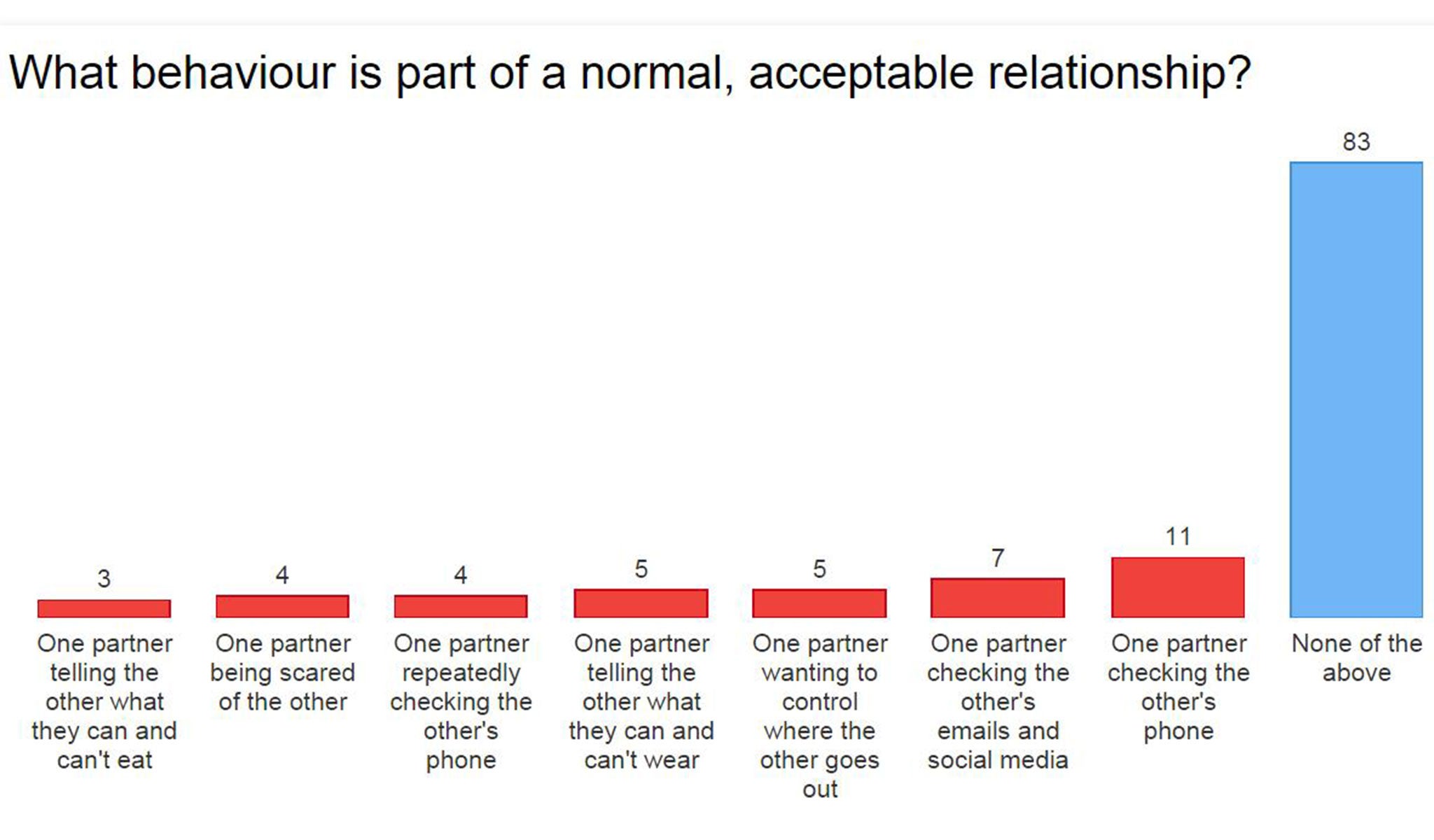How technology is fuelling Britain’s hidden domestic abuse epidemic
A third of women in the UK have been victims of 'coercive control' but most do not know it's a crime

A third of young women in the UK have experienced a form of domestic abuse that could be on the rise with the spread of mobile technology.
Research by Women’s Aid found that almost 40 per cent of 16 to 24-year-olds interviewed said they had been subjected to “controlling behaviour”, mainly including having their phone, messages, emails and social media accounts checked.
But only a tiny fraction of those recognised the behaviour as a type of "coercive control", which is now illegal under a law passed last year.
Polly Neate, the charity’s CEO, said that many girls and young women are abused in their first relationships, when they have nothing to compare it to.

“Domestic abuse is so much more than just physical abuse, and in our experience coercive control underpins the vast majority of all abusive relationships,” she added.
The Serious Crime Act 2015 made “controlling or coercive behaviour in an intimate or family relationship” illegal and punishable with up to five years in prison and hefty fines.
But many of the people interviewed by Women’s Aid were not aware of the recent law and considered some of the behaviour it encompasses normal.
One in 20 think that being scared of your partner was part of a “normal relationship”, the research found, while 10 per cent thought having their phone repeatedly checked was acceptable and only one in three knew what coercive control was.
Some blamed the abuse on themselves for not making their boyfriend or husband trust them and others took it as a sign they “care”.

The rise of mobile technology is making methods of control ever easier and more varied, from instant messaging services showing when communications have been read, to popular apps that track a person's whereabouts.
“The research also showed that for many women, being able to see the situation at the time is almost impossible,” a spokesperson for Women’s Aid said.
“While over a third of those questioned consider themselves as having been in controlling relationships, 37 per cent only knew this in hindsight and 10 per cent when it was highlighted to them by their friends and family.”
Charities who work with domestic violence victims say psychological abuse almost always either precedes or continues alongside physical attacks.
Chloe, an 18-year-old survivor, described her experience with her ex-boyfriend, who was her first relationship.

“I think it’s often the case that young people don’t have the experience of healthy relationships to know that what’s happening isn’t normal,” she said.
“It’s so easy just to think ‘all couples argue’, especially when someone is telling you that you provoked them all the time.
“And once they start wearing down your self-esteem and isolating you, it spirals to a point that you can’t see a way out.
“Having experienced coercive control I know it's very easy not to recognise those early signs of abuse, and end up staying in a relationship that's dangerous and takes over every aspect of your life.
“Raising awareness with young people is so important because it'll empower them to recognise signs of control early on and know what they are experiencing isn't normal or their fault.”
Women’s Aid research also revealed a lack of awareness about where to seek help on the issue, with many women saying they would be too embarrassed to ask or were worried about getting their partner in trouble.
At the same time, those not affected by coercive control said that if they suspected a friend or family member was being abused, they would not know what to do, would be “worried about making the situation worse” or feel unsure how to bring it up.
The charity has launched a campaign called Love Don’t Feel Bad with Avon and Women’s Aid to raise awareness around Valentine’s Day.
Anyone affected by domestic abuse can go to www.womensaid.org.uk for more information and support, or call the free national domestic violence helpline on 0808 2000 247.
Join our commenting forum
Join thought-provoking conversations, follow other Independent readers and see their replies
0Comments